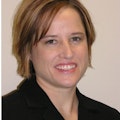Conducting an interview presents an interesting and unique set of challenges. It takes time and practice to get the skill right. Even the veterans among us will get an interview wrong from time to time. Yet good interviewing skills are a necessary function of management.
The key to a successful interview can be boiled down to one thing: the quality of the questions asked. Questions can solicit valuable information (or not), and can create insight or liability. Here we'll discuss three questions to avoid. We chose these three because they are common questions that may seem harmless on the surface yet they carry risk.
"Will you need to take time off in the next 12 months?"
Dentists tend to ask this question because they want to make sure they aren't hiring someone who needs time off right away. It makes sense. Recruiting and training are expensive, and dentists want to ensure a return on their investment.
One of the first problems with this is the fact that it's too broad, and life doesn't work this way. The person who answers no cannot promise that life won't get in the way. Will he or she get sick? Will something tragic happen to his or her family? There are no guarantees in life, so the question provides nothing concrete or valuable for the hiring dentist.
The other problem is the can of worms that can be opened when the person states he or she does need time off during the first 12 months of employment and why. Employers are expressly prohibited from acting on certain information about people prior to hiring them. Information about disabilities, pregnancy, medical conditions, genetic information, family history, and so on, are all protected. As an example, what happens if a person says she's pregnant (or trying to get pregnant) and will need time off to have the baby? The information, once shared, can never be taken back and can be the basis of a discrimination labor board complaint or a lawsuit against the dentist.
Related reading
How do you attract job candidates?
Instead ask: Can you fulfill the job duties and responsibilities of this position as they have been described to you, with or without a "reasonable accommodation"?
"Tell me about your family. Are you married? Do you have kids?"
These questions usually come about during small talk. Interviews can feel weird and formal. In this situation, people find ways to ease into the interview and create an open environment. They often do this by casually talking about a variety of personal topics, such as family and kids.
While this seems nice, it has nothing to do with a person's ability to perform the job or not, which is the only reason for the interview. Kids or no kids, spouse or no spouse, this information does little to inform the dentist about the person's competency for a position. All interview questions should be geared toward job-related characteristics or toward gauging the person's attitude and fit.
Most family information or familial status is protected information. Therefore, much like the first question, it can be used against the dentist at a future date.
"Your name is unique. Does it relate to where you're from?"
This may truly be simple curiosity, yet it has no relevance in determining someone's viability as a candidate. You know where we're going here. This can uncover issues with race and nationality, both of which are protected by law and are not to be used in the hiring decision.
Many interview questions can create liability, especially if a candidate is not hired. While the reason for not hiring him or her could be completely valid, the rejected individual could perceive that his or her answers to these questions affected your decision. If that happens, the dentist will have the burden to justify the rejection as legal, a tough and costly road to travel.
Be mindful of the questions you ask. Don't wing it. Be professional, and ensure your questions relate to the job at all times.
Editor's note: Originally posted in 2017 and updated regularly
About the Author

Rebecca Boartfield, SHRM-SCP
Rebecca Boartfield, SHRM-SCP, is an HR compliance consultant for Bent Ericksen & Associates. For more than 40 years, the company has been a leading authority in human resources and personnel issues, helping dentists successfully deal with ever-changing and complex labor laws. To learn more, call (800) 679-2760 or visit bentericksen.com.
